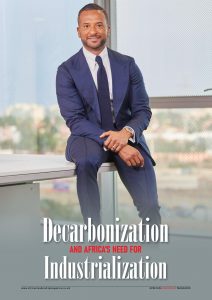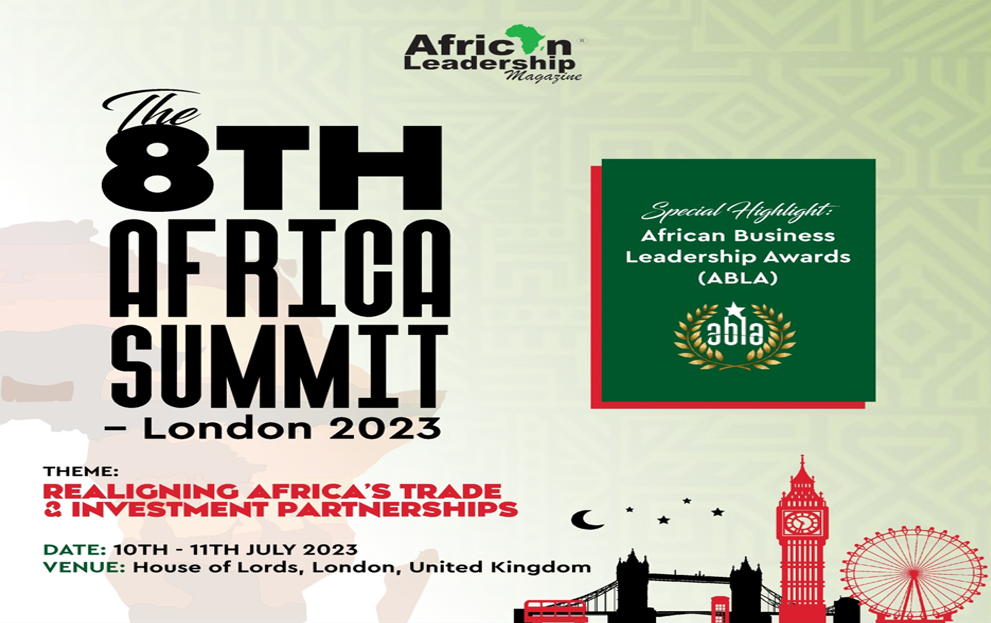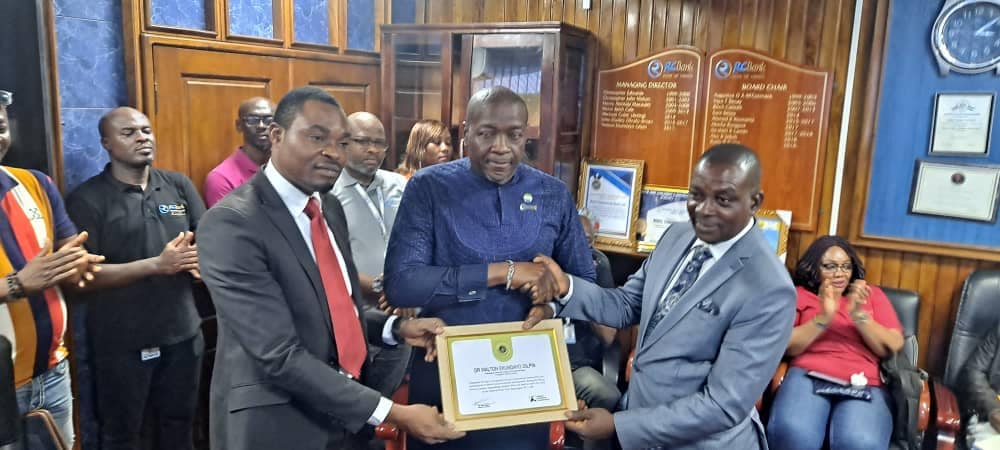Interview with Ivanilson Machado, the Chief Executive Officer of Pumangol.
As discussions around decarbonization and Africa’s quests for industrialization continues to gather momentum, Ivanilson Machado the Chief Executive Officer of Pumangol, Angola’s leading downstream company shares his thoughts on managing the process for seamless energy transition in the continent, Excerpts:
You have remained an inspiration in Africa’s oil and gas sector and a leading light in the industry. How were you able to build and sustain your towering pedigree in the continent’s oil and gas industry?
First of all, in any organization or business people are the pivotal element that drives growth and sustainability. That said, I have adopted a people´s centered approach that has been providing useful insights that lead me to having the right people at the right job for better results. This has been making a great difference in my success as a manager and as a person.
Secondly, I love my job, I love what I do so I devote my mental and physical energy at achieving the best and excel every day. I work closely with those who make things happen and our clients. It makes also a big difference to wear the company´s hat at all times and have the passion about the brand we represent. By working closely with my staff, I instill on them the same principles.
The energy and strength I put in at my work give me a clear vision of the way forward and how I contribute to the improvement of the downstream sector, by overcoming the challenges of the local economic, cultural and social context as well as the impacts of the global markets.
One other key thing I would like to add is that knowledge sharing with the young generation makes new leaders and bring positive results. So in my opinion, it may be easy to climb the ladder to the top but remaining there is a different and far harder thing. It is required to stand out from the crowd positively.
With the growing pressure towards decarbonization and the Africa’s need for industrialization, what in your view should be the priority for countries in the continent?
This is a big dilemma for Africa to conciliate and evolve around the two requirements. In one side we have the decarbonization issues affecting all countries either because they are dependent on fossil fuels or for the misusage of their natural resources for access to energy and wealth. On the other hand, there is the fact that Africa is lagging development as there are basic needs that are still to be catered for, like access to food, clean water, employment, energy, paved roads, telecoms, and overall ensuing economic development
In addition to that most of Africa is very vulnerable to climate change impacts that hamper the continent´s efforts to survive, least to develop. It is kind of a Cath 22 situation where there is no lee way as far as decarbonization is concerned but we do need to develop industrialization in Africa, a big challenge under the current context of the continent, either in terms of leadership, humans resources, infrastructure, industrial develop, employment, climate change,etc. However, like in any other difficulty, conflicting or critical situation there are always opportunities to grab. Africa does not need to start things from scratch in its effort to repositioning the continent to foster industrializationand economic development whilst pursuing the decarbonization agenda. African leaders need to have a clear vision that enables the delivery of the basic needs in tandem with requirements to underpin industrial development in a sustainable way.
Each country has its priorities, specificities, and dire needs. Therefore, what is a priority for Angola might not be the same for Mauritius or the DRC, for example. However, in my view, it is important that countries have a coordinated effort and continents share a shared vision towards economic development and industrialization while accounting for the continent’s carbon footprint reduction and sustainability.
With about 125.3 billion barrels of crude oil reserves and 17.55 trillion standard cubic meters of natural gas, Africa is no doubt blessed with abundant hydrocarbon resources. However, poor governance issues, lack of infrastructure, amongst other continue to hinder countries from fully benefitting from these natural resources. What in your view can be done to address some of the prevailing issues in the country?
There is a common perception that the misusage of African natural resources is an endogenous disease that affects leaderships in mineral rich African countries. It is fair to say that the external influence and manipulation is far more damaging to those African countries than the lack of shared values, vision, responsibility, true nationalism and Africanism African rich countries need to have country centric policies, i.e. invest more on education, have policies that clearly focus on bringing development, economic prosperity, equal opportunities and access to wealth; we need to have strong institutions, only achievable through education and capacity building. It is important to create in place attractive investment opportunities and above all have a sustainable approach embedded in everything we all do to change the status quo in the continent.
According to a report by McKinsey, Africa needs to build oil and gas pipelines, liquefied natural gas (LNG) terminals, distribution hubs and gas-fired power plants over the next 20 years to unlock its energy market with more than 600 million people, as Energy demand is expected to grow rapidly over the next two decades. What is your take on this position?
This indicates that the world will be dependent on fossil fuels for a long time to come, and it means a lot of challenges and opportunities. There is a need to make the right choices and decisions in accordance with the specificities and needs of each and every country in the continent. Africa does not necessarily need to rush or embark on fossil fuels solutions to enable access to energy. This is perhaps the time to have the right balance between the use of fossil fuels and the energy transition and there is a lot of potential for solar, wind and hydro power energy production solutions. In any case, at the end of the day, it should all be driven by the countries and continent shared vision for development, industrialization, economic recovery and development, the economics behind the best sustainable win-win solutions to respond to the energy growth demands on the continent. This sounds a bit idealistic, but that is the direction that we, as Africans, should aim at when confronted with the need for investment, particularly in the energy sector.
How do we boost local participation in the oil and gas industry on the continent?
One thing that should underpin any investment decision in the energy sector is a sound policy framework that takes into consideration of how much of that investment will be spent locally, either directly in the sector and related activities but also outside of the energy sector, and also considers the number of jobs that will be created and what new local businesses will be created as a result of such an investment. In terms of human capital, we know that Africa is short of qualified personnel in skilled areas of the oil industry. This is not the case for admin and unskilled job positions, and we should have legislation in place that would ensure that countries are not importing unskilled manpower that will take up job positions that should be filled by locals. For each investment, there should also be a human capital development programme target associated with the project so that, within a certain number of years, locals would be prepared to take up the skilled jobs of the project gradually. I am glad to share that we see this happening in a way in the upstream Angolan oil sector but not in other subsectors of the industry. Nevertheless, in the company I lead, there is no expatriate; we procure most of our services and products locally, yet we operate and deliver under any global standards in our downstream sector.
What will be your parting word for young leaders who are also looking to make their mark in the industry?
Prepare, prepare, and prepare yourself well. Work hard every day to excel and keep focused at all times. Life has challenges, but with them come opportunities. If we have a vision, set up a creative tension that will fuel us to get to wherever you envisage getting to. Keep the focus; nothing will let you
down, and success will come as a result. Note that nowadays it is no longer average talents that companies are looking for but rather highly talented people who have the right attitude of going the extra mile and excel themselves beyond expectations. This is where the young leaders are expected to rise and make a difference, as well as be a step ahead of everyone else.
As a distinguished honoree and recipient of both the Special African Leadership Commendation Award and induction into the ALM African Leadership Council (ALC), how do you feel, and how does this add to your personality?
I feel humbled and further motivated by the responsibility this brings to making good things for Africa and inspiring other African leaders to strive and shine both on the continent and in the world to regain respect and trust in African leadership capabilities. This is a step forward in breaking stereotypes about African leadership capabilities and bringing hope that the African generation of young leaders will bring change and true development to the continent.



